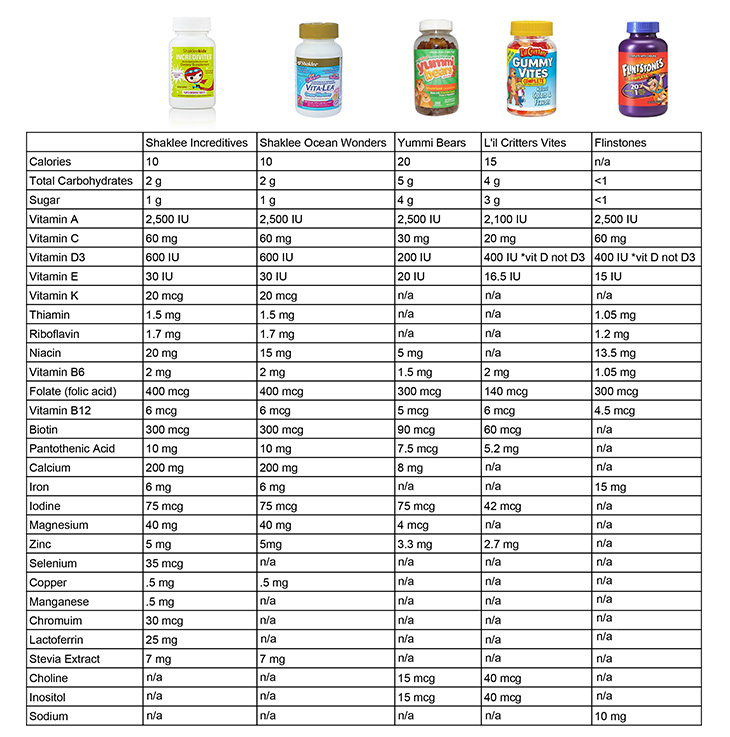The Importance of Iodine in Pregnancy
Category: Healthy Nutrition

Did you know that iodine is an important part of a healthy pregnancy?
Iodine is essential to the development of your baby's brain and nervous system. It also plays a crucial role when it comes to your metabolism and regulation of the thyroid gland.
Brain damage and other intellectual disabilities can be caused by iodine deficiency. But despite an important study in 2013 which found a link between iodine deficiency and lower IQ scores, pregnant mothers are still not getting adequate iodine supplementation.
Pregnant women are often told of the importance of consuming enough folate during pregnancy in order to prevent birth defects. You may also be aware of the importance of consuming omega-3 fats for your baby's brain and vitamin D for both baby and maternal health.
Some health care providers now recommend probiotics to their pregnant patients to protect against allergies in their children and more. Some pregnant women are aware of the importance of iodine, however, it's estimated that 67 percent of them still do not get enough via their diet alone.
Why is iodine important during pregnancy?
Our thyroid regulates many of our hormones and vital body functions such as:
• Heart rates
• Breathing
• Body weight
• Cholesterol levels
• Menstrual cycles
• Nervous systems
• Body temperature
What can happen if someone is iodine deficient?
Inadequate iodine intake leads to hypothyroidism. Thus, you might expect iodine deficiency to be associated with symptoms like:
• Fatigue
• Sensitivity to cold
• Dry skin
• Unexpected weight gain
However, you may not have known that thyroid hormone is also essential for bone and neural development during fetal development and infancy. Because of that, thyroid hormone production increases dramatically during pregnancy and lactation (Hence, the increase in iodine requirement for pregnant and lactating women).

Here are the consequences of iodine deficiency during pregnancy and lactation according to the experts:
• The National Institutes of Health says: "Mild iodine deficiency can cause lower than average IQ in infants and children…”
• The World Health Organization says: “Iodine deficiency is the single greatest cause of preventable intellectual disability in children worldwide.”
• The American Academy of Pediatrics says: “…mild iodine deficiency can affect cognitive development of the child..”
How common is iodine deficiency during pregnancy?
According to the American Academy of Pediatrics position paper and the National Institutes of Health Consumer information site, here are some facts about iodine deficiency in the U.S:
• Approximately 1/3 of pregnant and lactating women in the U.S. are at least marginally iodine deficient.
• Although most pregnant and lactating women take supplements, only 50% of prenatal supplements in the U.S. contain iodine.
What are the recommendations for Iodine intake?
The World Health Organization (WHO), as well as other public health organizations, suggest iodine levels of pregnant mothers should be 150 to 249 μg/L.
Some countries have adopted iodization programs, but many countries haven't.
While iodized salt might be available, it isn't always the majority of people's sodium intake. In the U.S., just 53% of household salt is iodized. In Sweden, only 27% was iodized.
If your country of residence hasn't adopted a salt-iodization program, it's your important personal responsibility to be conscious of your iodine intake. This would be much easier if there was more awareness about iodine deficiency, as many pregnant mothers aren't aware of its importance.
What are the best ways to optimize your iodine levels?
While the levels of iodine can vary from one sample of the same food to another, these foods are sources of iodine:
Toxin-free sea vegetables and spirulina are likely the ideal natural sources from which to obtain your iodine—however, make sure that these are harvested from uncontaminated waters (especially if you're pregnant!) and be careful not to overdo it.
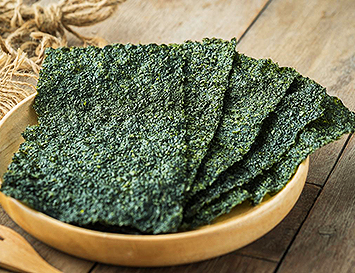
Consuming sea vegetables comes with the added benefit of providing valuable minerals and modulating your gut flora. It also alters estrogen metabolism and lowers your risk of breast cancer .One study even found that consuming a sheet of nori a day may cut a woman's risk of breast cancer in half.
Other sources of Iodine:
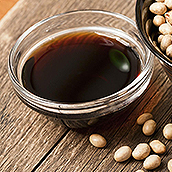
Soy sauce

Seaweed such as kelp and dulci

Soy milk
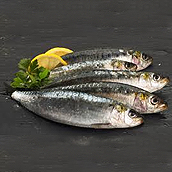
Saltwater fish

Eggs

Shellfish
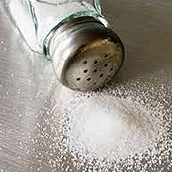
Iodized table salt (not all table salt is iodized, be sure to check the label)

Dairy products such as yogurt and milk (if you consume dairy, choose full fat)
While these foods contain iodine, recent studies seem to support the need for iodine supplements, in addition to consuming foods naturally containing iodine.
To help boost your iodine and other nutrient intake, you can take Shaklee's Vita-Lea.
It contains optimized micronutrient levels including 800 mcg of folic acid, 200 mcg of iodine and 18 mg of iron.
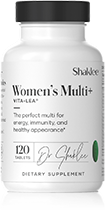
Other products to help you boost iodine levels and have a healthy pregnancy:
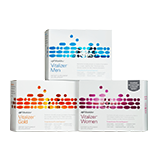
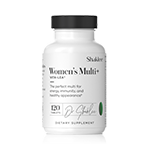
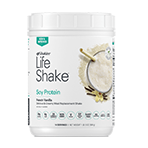
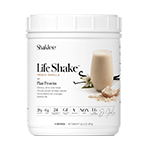
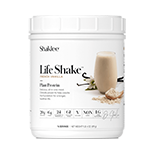
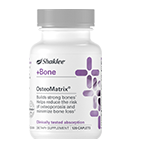

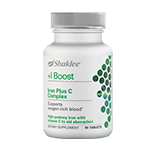
Anytime you have a concern about your health or your baby's, it's important to reach out to your maternity healthcare provider. You can ask your midwife or doctor if they routinely check for iodine levels, and if your thyroid function is off according to your routine labs.
If you're planning to conceive, getting into the habit of paying attention to your natural intake of nutrients does wonders. Read labels, choose a variety of whole foods and make healthy food choices that contain iodine.
Thanks for reading!
Ann

